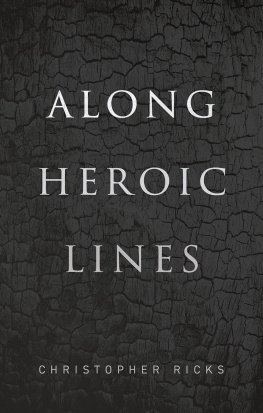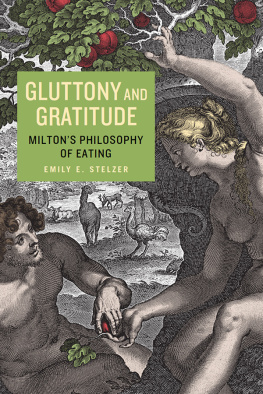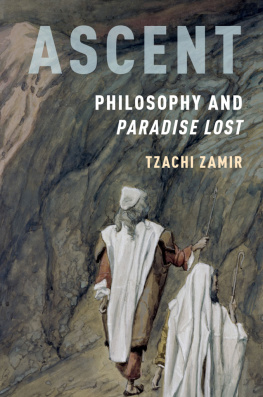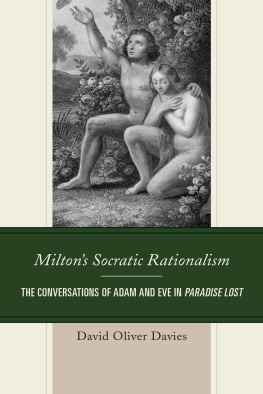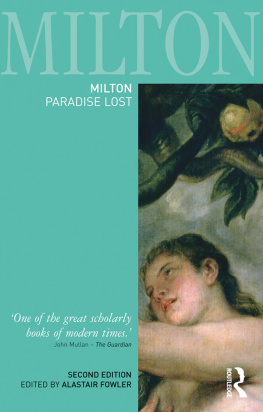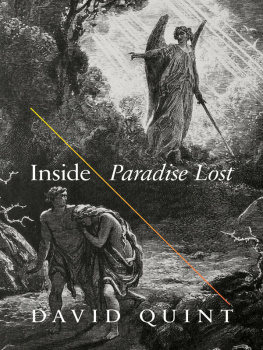Christopher Ricks - Miltons Grand Style
Here you can read online Christopher Ricks - Miltons Grand Style full text of the book (entire story) in english for free. Download pdf and epub, get meaning, cover and reviews about this ebook. year: 1978, publisher: Oxford University Press, genre: Romance novel. Description of the work, (preface) as well as reviews are available. Best literature library LitArk.com created for fans of good reading and offers a wide selection of genres:
Romance novel
Science fiction
Adventure
Detective
Science
History
Home and family
Prose
Art
Politics
Computer
Non-fiction
Religion
Business
Children
Humor
Choose a favorite category and find really read worthwhile books. Enjoy immersion in the world of imagination, feel the emotions of the characters or learn something new for yourself, make an fascinating discovery.

- Book:Miltons Grand Style
- Author:
- Publisher:Oxford University Press
- Genre:
- Year:1978
- Rating:5 / 5
- Favourites:Add to favourites
- Your mark:
- 100
- 1
- 2
- 3
- 4
- 5
Miltons Grand Style: summary, description and annotation
We offer to read an annotation, description, summary or preface (depends on what the author of the book "Miltons Grand Style" wrote himself). If you haven't found the necessary information about the book — write in the comments, we will try to find it.
Miltons Grand Style — read online for free the complete book (whole text) full work
Below is the text of the book, divided by pages. System saving the place of the last page read, allows you to conveniently read the book "Miltons Grand Style" online for free, without having to search again every time where you left off. Put a bookmark, and you can go to the page where you finished reading at any time.
Font size:
Interval:
Bookmark:

- Great Clarendon Street, Oxford OX2 6DP
- Oxford University Press is a department of the University of Oxford.
- It furthers the University's objective of excellence in research, scholarship,
- and education by publishing worldwide in
- Oxford New York
- Athens Auckland Bangkok Bogot Buenos Aires Cape Town
- Chennai Dar es Salaam Delhi Florence Hong Kong Istanbul Karachi
- Kolkata Kuala Lumpur Madrid Melbourne Mexico City Mumbai Nairobi
- Paris So Paulo Shanghai Singapore Taipei Tokyo Toronto Warsaw
- with associated companies in Berlin Ibadan
- Oxford is a registered trade mark of Oxford University Press
- in the UK and in certain other countries
- Published in the United States
- by Oxford University Press Inc., New York
- Oxford University Press 1963
- The moral rights of the author have been asserted
- Database right Oxford University Press (maker)
- Reprinted 2001
- All rights reserved. No part of this publication may be reproduced,
- stored in a retrieval system, or transmitted, in any form or by any means,
- without the prior permission in writing of Oxford University Press,
- or as expressly permitted by law, or under terms agreed with the appropriate
- reprographics rights organization. Enquiries concerning reproduction
- outside the scope of the above should be sent to the Rights Department,
- Oxford University Press, at the address above
- You must not circulate this book in any other binding or cover
- and you must impose this same condition on any acquirer
- ISBN 0-19-812090-7
MILTON'S Grand Style has been vigorously attacked in the twentieth century, and this book is an attempt to refute Milton's detractors by showing the kind of life which there is in the verse of Paradise Lost. Because the style is powerful and grand, it has sometimes been assumed that it is only powerful and grand. I have tried to show its delicacy and subtlety, in the belief that its strength is not that of a steamroller.
I am very grateful indeed for the advice of those who read an earlier draft: Mr. F. W. Bateson, Mr. John Bryson, Mr. Martin Dodsworth, Mr. John Gross, Mr. Roger Lonsdale, and Mr. W. W. Robson.
For permission to quote, I am grateful to: Mr. T. S. Eliot, and Faber & Faber (Four Quartets); Mr. W. H. Auden, and Faber & Faber (Collected Shorter Poems); Mr. J. B. Leishman, and the Hogarth Press (R. M. Rilke's Selected Works, Volume II); Dr. Donald Davie, and Routledge & Kegan Paul (Syntax and Music in Paradise Lost, in The Living Milton, ed. F. Kermode).
C. B. R.
Worcester College, Oxford
E. & S.
Essays and Studies of the English Association
E. in C.
Essays in Criticism
E.L.H.
E.L.H. A Journal of English Literary History
O.E.D.
Oxford English Dictionary
P.M.L.A.
Publications of the Modern Language Association of America
References to Milton's early editors are abbreviated as follows:
Bentley:
Richard Bentley, Paradise Lost (1732)
Hume:
Patrick Hume, Poetical Works of Milton, Annotations by P. H. (1695)
Newton:
Thomas Newton, Paradise Lost (1749)
Pearce:
Zachary Pearce, A Review of the Text of Paradise Lost (1733)
Richardson:
Jonathan Richardson, Father and Son, Explanatory Notes on Paradise Lost (1734)
LIKE many years, 1958 saw the publication of a stern letter from Dr. F. R. Leavis. He announced that he was still unwilling to join the conspiracy of silence about Milton, and with much justification he deplored the habitual way in which the Miltonistsand the Miltonists command the academic worldvirtually ignore the case that has been made against Miltoneven while they make a show of discussing it.
Certainly it is true that the twentieth-century attacks on Milton's style have not been directly and satisfactorily answered. Equally certainly, the Miltonists praise of Milton has not gone very far towards showing what exactly is good about the style of Paradise Lost. Perhaps it is natural to feel some impatience about the whole matter. Even Professor William Empson saw nothing evasive in saying I can sympathize with a critic who feels he cannot take seriously a proof that the poem is badit is so evidently not bad. But if, as Dr. Johnson thought, it is the duty of criticism to improve opinion into knowledge, then it is hard to be satisfied with opinion. Moreover, Milton's style is still an interesting challenge to the verbal criticism which now seems one of the most important and useful ways of approaching literature.
Milton, then, can provoke a crisis of conscience. Is it possible to reconcile one's honest opinion thatParadise Lost is supremely well written with one's opinion that verbal
The traditionalists need feel no difficulty. Professor F. T. Prince has referred to the fact that Milton's poetry does not respond to this kind of analysis and appreciation [New Criticism], and that his work has therefore always been ranked low by the founders and followers of this school. But is it a fact that Milton's poetry doesnt respond to New Criticism? It is certainly the opposite of a fact that Milton has always been ranked low by such critics. Mr. Empson? Mr. Cleanth Brooks?
Yet it is the anti-Miltonists who have provided what is, in some ways, the most useful approach to Milton. Not, I think, that their criticisms are true, but in taking seriously Milton's use of words, they force the same kind of seriousness on their opponents. From Dr. Leavis and Mr. T. S. Eliotthe foremost though not the only modern anti-Miltonistsone can perhaps construct a positive understanding of Milton's style. The grittiness of their method may one day produce a pearl.
Dr. Leavis's essay on Milton's Verse was originally published as an article in Scrutiny in 1933, though it did not appear in book-form (in Revaluation) till 1936, So it precedes Mr. Eliot's full-length piece. Dr. Leavis attacked the inescapable monotony of the ritual, insisting that the pattern, the stylized gesture and movement, has no particular expressive work to do, but functions by rote, of its own momentum, in the manner of a ritual. To say that Milton's verse is magniloquent, he urged, is to say that it is not doing as much as its impressive pomp and volume seem to be asserting; that mere orotundity is a disproportionate part of the
In studying Dr. Leavis's argument, one must first notice that he is not above a pretty blatant bullying: It should be obvious at once to any one capable of being convinced at all; or It would be of no use to try and argue with any one who contended that; or It needs no unusual sensitiveness to language to perceive that. It is important that we should not just knuckle under. But it is also important that we shouldnt assume that bullying necessarily conceals poor arguments.
The second point is larger: the Shakespearian use of English. Dr. Leavis has always insisted on this exploratory-creative use of wordswhat Mr. Eliot called that perpetual slight alteration of language, words perpetually juxtaposed in new and sudden combinations, meanings perpetually
Font size:
Interval:
Bookmark:
Similar books «Miltons Grand Style»
Look at similar books to Miltons Grand Style. We have selected literature similar in name and meaning in the hope of providing readers with more options to find new, interesting, not yet read works.
Discussion, reviews of the book Miltons Grand Style and just readers' own opinions. Leave your comments, write what you think about the work, its meaning or the main characters. Specify what exactly you liked and what you didn't like, and why you think so.

